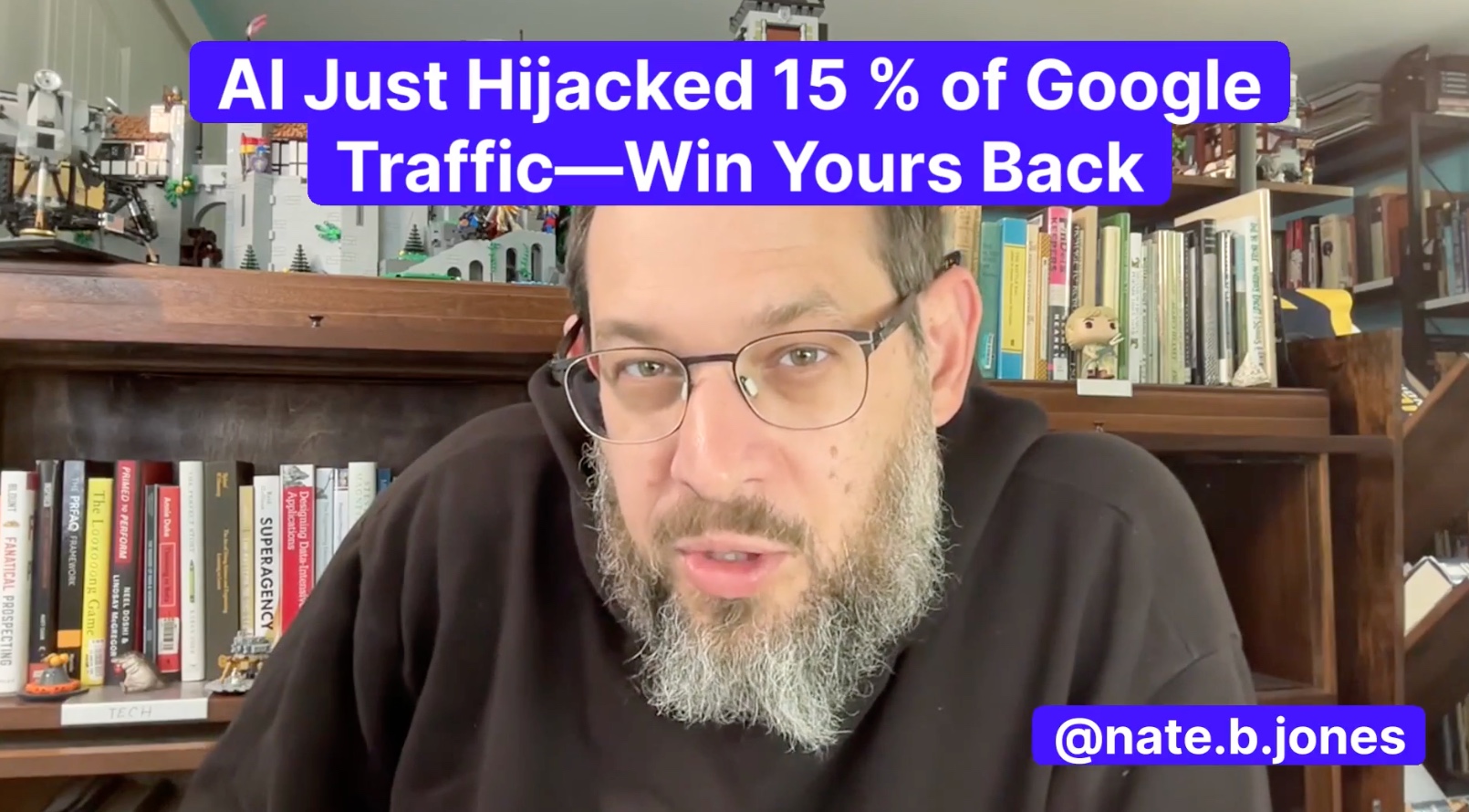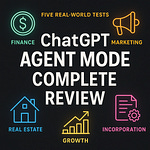This isn't an article about SEO—it's a wake-up call.
Whether you're a seasoned CMO or a college student hustling on LinkedIn, the game has changed, and most people haven’t noticed yet. But if you're reading this, you're already ahead. You sense something is off. Google feels different, traffic is slipping, and suddenly you're competing not just with other websites, but with an entirely new class of competitors: AI models. Welcome to the new reality, where your biggest reader isn't even human.
Yes it’s AI. That’s why this matters, and why the stakes couldn't be higher.
First principles first: what fundamental shift is happening? Andrej Karpathy, former head of AI at Tesla and a leading thinker in machine learning, recently highlighted a profound shift: we are no longer writing for humans, or even traditional search engines. We are writing for the attention of large language models (LLMs).
Your beautifully crafted content, your meticulously researched blog posts, your strategically placed keywords—they've become training data. You are literally educating Google's AI on how to answer questions without sending anyone to your website. Your hard-earned traffic? It's vanishing into summaries generated by machines.
Think about it this way: Imagine spending months perfecting your brand message only to realize you're invisible—not because your SEO is bad, but because an AI decided you're not relevant enough to mention. Your brand doesn't just need clicks anymore; it needs to become part of the AI's conceptual memory.
Key Insight: We're now competing for "parameter space," the neural connections inside these giant models. If your brand (personal or company brand) isn't embedded as a clear, consistent, and authoritative signal, you risk fading into digital obscurity.
Whether you're running a billion-dollar enterprise or simply building your personal brand, these lessons apply directly to you. Every post you share on social media, every blog you write, every podcast appearance you make—they’re opportunities to imprint your identity clearly in the AI’s understanding. You need to think like a neural network. What concepts does your personal brand stand for? Are you consistently communicating them in a way that an AI model would recognize and reinforce?
Why should you care about AI's "attention," even as an individual? Because personal branding has always been about visibility, credibility, and authority. Previously, this meant ranking on Google's first page or growing a LinkedIn following. Now, the alpha is in ensuring your unique insights and identity get encoded in the AI models that millions of people are already using to make critical decisions—from professional opportunities to purchasing choices.
Let's bring this down to earth. Imagine someone asking ChatGPT or Claude, "Who are the top product managers specializing in [name your vertical specifically]?" If your name isn't immediately referenced, you've missed an enormous opportunity.
I’m not trying to overpromise here: I won’t tell you that if you magically do these 10 things you’ll outrank Sam Altman on AI strategy. The riches are in the niches—figure out what parameters you can grab with authority that are specific, and go get the LLM to notice you.
Conversely, if you've diligently structured your content—clearly defining your niche, repeatedly demonstrating expertise, and actively participating in relevant discussions—you've carved out your own space in the model’s neural network. This isn’t future speculation; this is happening right now.
So, here's the brutal truth: if you aren’t actively shaping how AI perceives you or your brand, you’re passively allowing your digital identity to be defined by randomness or competitors. Every inconsistency in your messaging becomes noise, making it harder for AI to clearly see you. And once these models have formed an opinion—positive, negative, or indifferent—it becomes exponentially harder to change that perception later on.
Why does it get harder to change LLM perceptions over time? Because of a concept called parameter lock-in: model preferences solidify as model generations successively reinforce brand perceptions over time. I dive in much deeper below…
This article matters because it will show you precisely how to adapt to this new paradigm. It’s your playbook for getting noticed by LLMs.
Inside, you'll learn how to structure your content not just for clicks, but for clarity, consistency, and computational understanding. You'll discover practical techniques to align your brand across digital spaces, creating signals that AI can’t ignore. You'll understand how even small-scale application of these methods to your personal content can significantly amplify your digital presence.
The landscape is shifting dramatically. The brands and individuals that grasp these insights now will reap enormous rewards. Those who ignore this shift risk digital invisibility. The old rules of SEO are crumbling, replaced by a new reality that demands we earn our spot not just in search results, but in neural memory.
Are you ready to stop writing for clicks and start writing for AI’s attention?
The future of discovery, visibility, and digital identity is being shaped right now. You have a choice: become a parameter, a fixed and essential reference in the AI’s mind—or become background noise.
This is your definitive guide to winning in the AI age. Let's dive in.
Listen to this episode with a 7-day free trial
Subscribe to Nate’s Substack to listen to this post and get 7 days of free access to the full post archives.
















